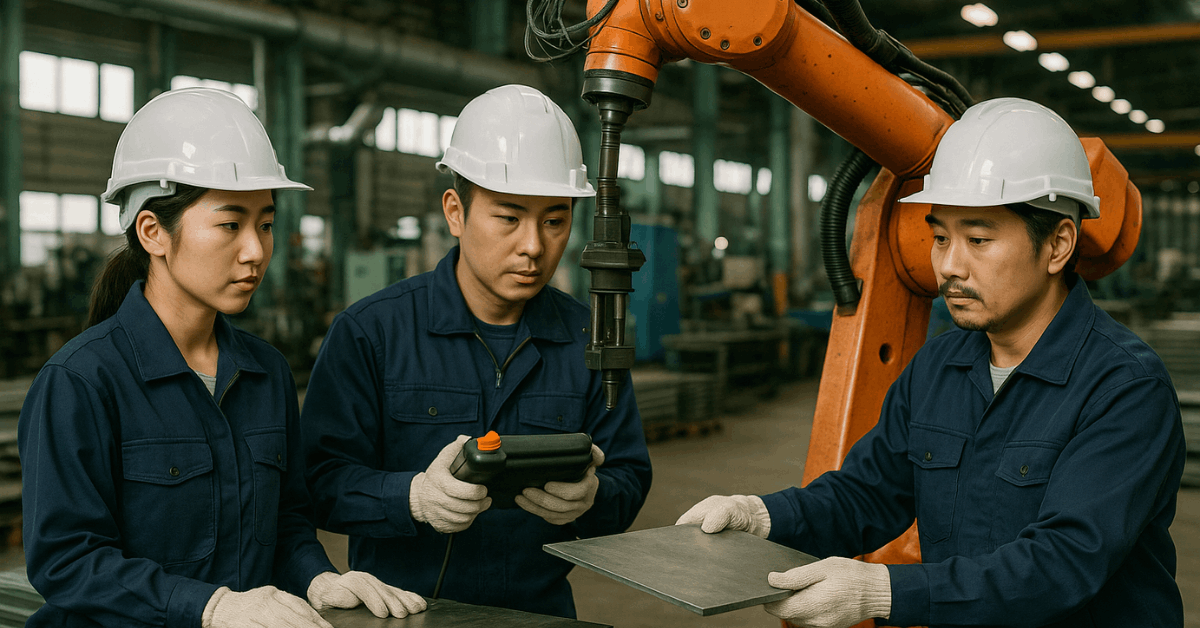Factories are central to Japan’s economy, providing work for locals and foreign employees. Many readers want to learn about factory roles and typical pay rates in Japan when considering opportunities.
The manufacturing sector covers industries like automotive, electronics, and food processing. This article outlines the main positions, salary ranges, benefits, and challenges in detail.
General Overview of Factory Employment in Japan
Factory work in Japan has long been known as stable and important for the economy. Jobs are available to locals as well as many foreign workers.
Most positions involve assembly lines, production areas, or logistics tasks. Shifts and overtime are a regular part of daily work routines.
Pay depends on skills, job type, and location within the country. Tokyo and Osaka often provide higher wages than rural areas.

Common Factory Roles and Pay Rates
Factories in Japan employ people in many different roles. Each role has its own duties and salary expectations.
Factory Line Worker - Entry-Level
Line workers handle assembly, packaging, and product checks. This role requires discipline and the ability to keep pace with production speed.
Monthly salaries average between ¥180,000 and ¥230,000. Many foreigners begin their factory careers in this position.
Machine Operator
Machine operators ensure factory equipment runs smoothly. Duties include adjusting controls, maintaining machines, and overseeing automated processes.
Salaries range from ¥200,000 to ¥260,000 per month. Training or prior technical experience improves earning potential.
Quality Control Inspector
Inspectors play an important role in maintaining product standards. Their job includes checking for defects and confirming compliance with company rules.
Average monthly pay falls between ¥220,000 and ¥270,000. This role demands precision and attention to detail.
Forklift Operator / Logistics Staff
Logistics staff manage warehouse movement and handle shipping operations. Forklift certification is often required to operate machinery.
Monthly salaries range from ¥200,000 to ¥250,000. Workers in this role are vital for keeping supply chains efficient.
Skilled Technician - Electronics/Automotive
Technicians focus on specialized tasks involving electronics or automotive components. Their expertise allows them to handle repairs and troubleshooting.
Salaries typically fall between ¥250,000 and ¥320,000 monthly. This role offers more stability and long-term career growth.
Team Leader / Line Supervisor
Supervisors coordinate workers and ensure production runs smoothly. They handle reporting, planning, and communication with management.
Salaries range between ¥280,000 and ¥350,000 each month. Leadership experience is required to succeed in this role.
Maintenance Engineer
Engineers are responsible for repairing and maintaining heavy equipment. Their tasks include preventive checks and emergency responses.
Average salaries range from ¥300,000 to ¥400,000 monthly. This position requires specialized training and strong technical skills.
Factory Manager
Managers supervise overall factory operations and monitor productivity. They balance labor management, equipment oversight, and quality control.
Salaries are higher, ranging from ¥450,000 to ¥600,000 monthly. This is the top position within most factory structures.
Benefits of Factory Employment in Japan
Factory jobs in Japan provide more than just monthly pay. Workers also receive benefit packages that support health, financial security, and daily living.
- Overtime pay – Workers earn 25%–50% more for extra hours.
- Annual bonuses – Many companies pay one to two months of salary as bonuses.
- Health insurance – Employees are included in social insurance coverage.
- Pension contributions – Factories enroll workers in national pension programs.
- Paid leave – Staff receive 10–20 days depending on length of service.
- Housing support – Some companies provide dormitories or rental subsidies.
- Transportation allowance – Employers often cover commuting costs.
- Permanent contracts – After probation, many workers receive stable contracts.
Each benefit strengthens the overall value of factory employment. Workers not only earn steady income but also enjoy long-term security.
For foreign employees, housing support and transportation allowances are particularly helpful. Benefits remain a strong attraction for those entering factory jobs.

Factors Influencing Salary Differences
Not all workers in Japan are paid the same for similar jobs. Several key factors explain the differences in wages.
Region
Salaries differ between urban and rural areas. Workers in Tokyo and Osaka generally earn more than those in smaller towns.
Companies in major cities also provide extra allowances. Location strongly affects total monthly pay.
Industry Type
Pay depends on the type of factory where you work. Electronics and automotive plants usually pay higher wages than food production.
Advanced industries reward technical knowledge more. Industry choice shapes income potential.
Experience and Certifications
Experienced workers earn higher wages than new hires. Certifications in machinery or safety can also increase salaries.
Skilled staff often move into better paid positions quickly. Training adds value to your career.
Shifts and Overtime
Working night shifts and extra hours raises monthly income. Overtime pay is legally required at higher rates.
Many employees rely on these payments for additional earnings. Shifts and hours worked directly affect salaries.
Opportunities for Foreign Workers
Japan’s factories rely on foreign workers to cover labor shortages. Government programs open paths for many to join the workforce.
Most begin with temporary contracts and later secure permanent roles. Experience and language skills expand opportunities.
The Technical Intern Training Program gives foreigners basic factory training. Another option is the Specified Skilled Worker visa for longer stays.
Career Growth in the Factory Sector
Factory jobs in Japan are not limited to entry-level roles. Many workers advance to supervisory or technical positions with training.
Certifications help employees build long-term career paths. Motivated individuals often see real opportunities for growth.
Workers can move from assembly into machine operations or quality control. Strong performance leads to leadership roles and stable career progression.
Challenges of Factory Work in Japan
Factory jobs in Japan provide stability but also bring challenges. Workers, both local and foreign, need to be prepared for these realities.
- Long working hours – Extended shifts often cause physical and mental fatigue.
- Overtime culture – While it increases earnings, excessive overtime can lead to exhaustion.
- Limited advancement – Smaller factories may not provide many opportunities for promotion.
- Strict workplace rules – Adapting to Japan’s regulations can be difficult, especially for foreign employees.
Where to Apply for Factory Roles in Japan?
Job seekers can find factory roles through different reliable channels. Companies and agencies post positions online, while government programs also support applications.
Online Job Portals
Websites like GaijinPot Jobs, Daijob, and Rikunabi list factory roles across Japan. These platforms allow filtering by location, industry, and experience level.
Applications are usually submitted online with resumes in English or Japanese. Job seekers can track openings and set alerts.
Recruitment Agencies
Agencies such as Mynavi Global and Hello Work connect workers with factories that need staff. They guide applicants through contract terms and visa processes.
Many agencies also provide translation support. This makes them a good option for first-time foreign workers.
Direct Company Applications
Large factories often recruit directly through their official websites, such as Toyota Careers or Panasonic Careers. Automotive and electronics companies have career sections for local and foreign applicants.
Applying directly gives more clarity on benefits and contracts. Candidates can also attend walk-in interviews during recruitment drives.
Government Programs
Programs like the Technical Intern Training Program and the Specified Skilled Worker visa are official routes. These programs connect applicants to factories needing labor.
They also ensure fair pay and compliance with Japanese labor laws. Applicants must meet visa requirements before applying.
Final Thoughts: Why These Roles Matter?
Understanding factory roles and typical pay rates in Japan is essential for workers and job seekers. These positions provide income stability, strong benefits, and room for career growth.
Despite challenges, factory employment remains a reliable path for many people. Japan continues to depend on factories, making these roles valuable for both locals and foreigners.




















